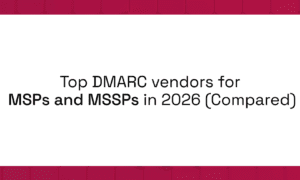Getting on the first page of Google search results is often considered the holy grail for businesses and websites aiming to drive more traffic, increase brand visibility, and ultimately boost sales or engagement. With an estimated 90% of users never clicking past the first page of results, mastering the art of search engine optimization (SEO) is crucial. One individual who has made a significant impact in the SEO world is David Aziz, a marketing strategist known for his innovative approaches to online search strategies. In this article, we will explore some key strategies inspired by Aziz’s insights on how to land on the coveted first page of Google.
Understanding Google’s Algorithm
Before diving into the strategies, it’s important to understand how Google’s algorithm works. Google uses a sophisticated system to rank pages based on hundreds of factors, including relevance, content quality, backlinks, user experience, and more. While Google keeps its algorithm secret, experts like David Aziz have identified key elements that can help websites rank higher.
1. Keyword Research and Optimization
One of the most fundamental aspects of SEO is keyword research. Understanding which keywords or phrases your target audience is using to search for your product, service, or information is crucial. David Aziz emphasizes the importance of thorough keyword research as the foundation for any SEO strategy.
- Use Tools: Tools like Google Keyword Planner, Ahrefs, and SEMrush can help identify high-volume, low-competition keywords.
- Long-tail Keywords: These are more specific phrases (e.g., “best vegan restaurants in NYC” instead of just “restaurants”) that are easier to rank for and tend to have higher conversion rates.
- Content Optimization: Once you have your keywords, use them strategically in your content, title tags, meta descriptions, headers, and throughout the body of your text. However, be careful not to overuse them, as keyword stuffing can lead to penalties from Google.
2. Create High-Quality, Relevant Content
Content is king, and David Aziz strongly advocates for creating high-quality, informative content that adds value to your audience. Google prioritizes content that answers users’ queries effectively, so focusing on content relevance and quality is essential.
- Originality: Google rewards websites that publish unique and original content. Avoid duplicating content from other sources, as this can negatively impact your rankings.
- Depth of Content: In-depth, comprehensive articles tend to perform better than short, superficial ones. Aim to answer common questions and cover topics thoroughly.
- Regular Updates: Websites that regularly update their content tend to rank higher. Aziz suggests adding fresh content and revisiting old blog posts to keep them relevant.
3. Optimize for Mobile and User Experience
In recent years, mobile-friendliness has become a crucial factor in Google’s ranking algorithm. David Aziz emphasizes that websites must be optimized for mobile devices, as a large percentage of users access the web through smartphones and tablets.
- Mobile Optimization: Ensure your website is responsive, meaning it adjusts smoothly to different screen sizes. This improves the user experience and reduces bounce rates.
- Page Load Speed: Google penalizes websites that take too long to load. Tools like Google PageSpeed Insights can help you assess and improve your site’s speed.
- User Engagement: Factors like bounce rate, time on site, and pages per session also play a role in rankings. Enhancing the overall user experience with intuitive design, easy navigation, and clear calls to action is vital.
4. Build Backlinks from Authoritative Sites
Backlinks, or links from other websites to your own, signal to Google that your content is trustworthy and valuable. David Aziz stresses the importance of building a solid backlink profile, which can significantly boost your website’s ranking.
- Quality over Quantity: Not all backlinks are created equal. Backlinks from high-authority sites (such as industry leaders or well-respected blogs) carry more weight than a large number of low-quality links.
- Guest Blogging: One effective way to earn backlinks is by contributing guest posts to reputable websites in your niche. Make sure to include a link back to your site.
- Build Relationships: Networking with influencers, bloggers, and website owners can help you earn organic backlinks over time.
5. Leverage Local SEO
For businesses targeting a specific geographic area, local SEO can be a powerful tool. David Aziz advises companies to optimize for local search results by focusing on location-specific keywords and claiming their Google My Business (GMB) profile.
- Google My Business: Ensure your GMB listing is complete and up-to-date, including your business address, phone number, website link, hours of operation, and customer reviews.
- Local Keywords: Use location-based keywords in your content and meta tags, such as “plumber in San Diego” or “New York boutique hotels.”
- Reviews and Ratings: Positive reviews on platforms like Google and Yelp can enhance your local SEO rankings, as they signal to Google that your business is trusted by the community.
6. Optimize On-Page SEO Elements
In addition to content, certain on-page SEO elements directly influence how well your pages rank on Google. David Aziz highlights the importance of optimizing these elements for both users and search engines.
- Title Tags: Each page should have a unique, keyword-optimized title tag that accurately reflects the content of the page.
- Meta Descriptions: Although meta descriptions don’t directly impact rankings, a compelling meta description can improve your click-through rate, which indirectly boosts your SEO.
- Header Tags (H1, H2, H3): Use header tags to structure your content and make it easier for users (and search engines) to understand the hierarchy of information.
- Image Optimization: Use descriptive filenames and alt text for images, and compress images to improve page load speed.
7. Monitor and Adapt Your SEO Strategy
SEO is an ongoing process that requires continuous monitoring and adjustments. David Aziz advises using tools like Google Analytics and Search Console to track your performance, identify what’s working, and make necessary improvements.
- Track Keywords: Monitor how your targeted keywords are performing in search results. If certain keywords aren’t delivering results, consider revising your strategy.
- Analyze Competitors: Regularly analyze your competitors to see what they’re doing right. Tools like Ahrefs can help you uncover their best-performing keywords and backlinks.
- Stay Updated: Google’s algorithm is constantly evolving, so staying up-to-date with the latest trends and changes in SEO is essential for long-term success.
Conclusion
Achieving a spot on the first page of Google search results is not an overnight process. It requires a combination of keyword research, high-quality content, technical SEO, and consistent effort. Drawing inspiration from the strategies advocated by David Aziz, businesses and website owners can improve their chances of ranking higher and gaining more visibility in the competitive online landscape. By optimizing for mobile, focusing on user experience, and building authoritative backlinks, your website can climb the ranks and enjoy the benefits of being on Google’s first page.

































